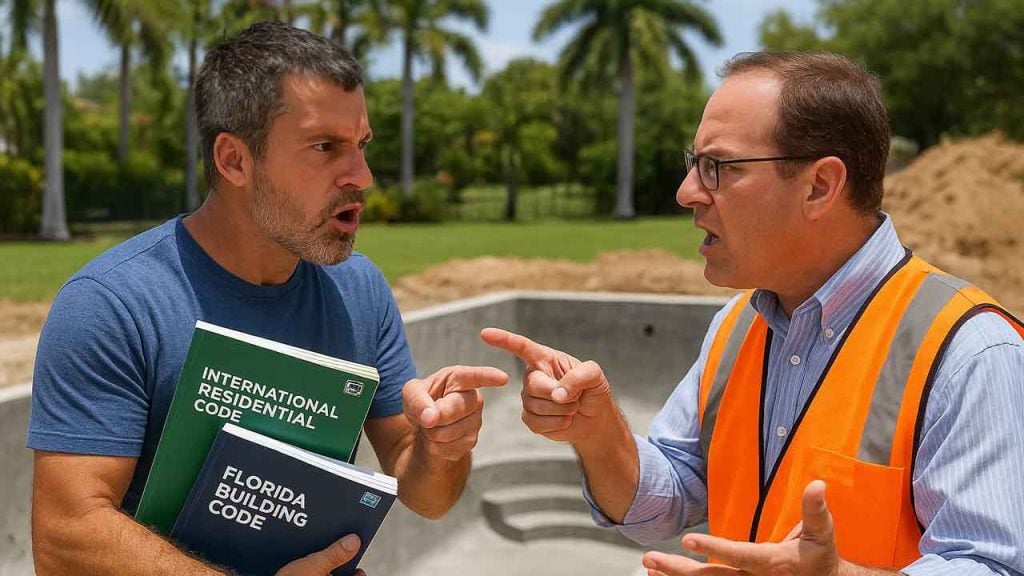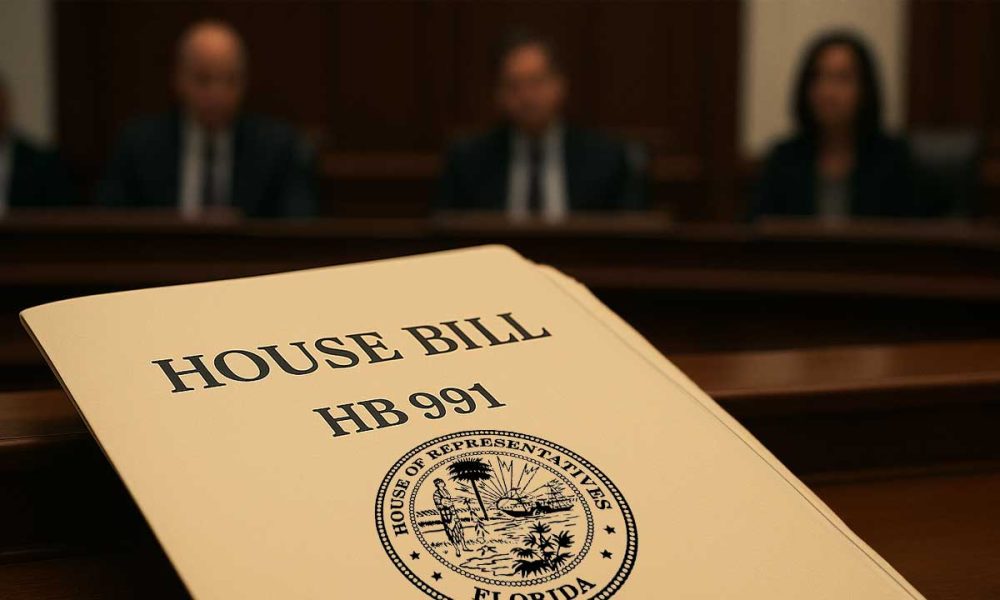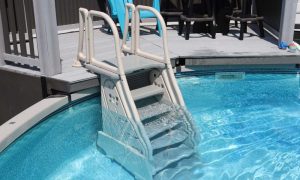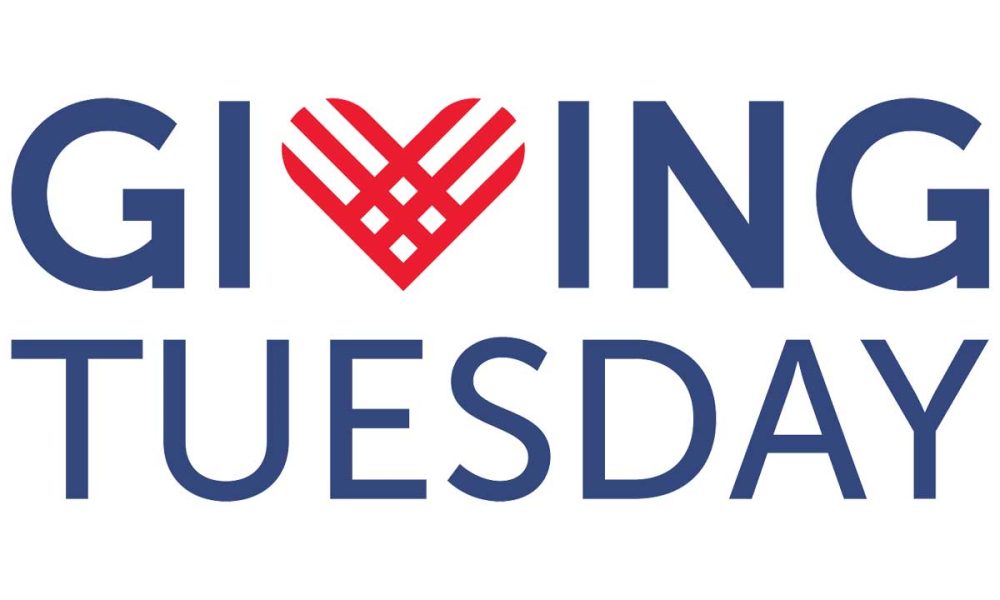The Florida pool industry is under siege from a flurry of dangerous legislative proposals threatening to dismantle vital protections that contractors and consumers have relied on for decades. In a recent episode of the Pool Magazine Podcast, Dallas Thiesen, Chief Government Relations Officer for the Florida Swimming Pool Association (FSPA), gave an in-depth look at the mounting challenges facing the industry.
FSPA Successfully Defends Against SB 712
Earlier this week, Pool Magazine reported on a troubling amendment to Senate Bill 712 (SB 712), which proposed allowing general contractors and building contractors to construct the wet deck areas around swimming pools. The FSPA quickly mobilized, identifying the threat hidden deep within the amendment’s language and taking decisive action.
“This was not something that was being put forward by a group of building contractors beating down the halls in Tallahassee saying, ‘Hey, we need this, we want this,’” Thiesen explained. “This was a single constituent issue by a single representative, and there was no constituency for this. It was unwarranted, unasked for, and we could not just stand by and let this happen.”
Traditionally, wet deck construction falls strictly under the expertise of licensed pool contractors, who are trained to adhere to stringent safety standards. Expanding that scope to general and building contractors would have dramatically altered the landscape of pool construction in Florida, potentially jeopardizing public safety.
“Essentially, you’d be letting general contractors and building contractors who are not qualified to build swimming pools build a good portion of the structural components,” said Thiesen. “And we just could not let that happen.”
Through rapid lobbying efforts and grassroots mobilization, FSPA was able to have the harmful language stripped from SB 712. Amendments were filed in both the Senate and House to remove the provision, and ultimately, the industry celebrated a hard-fought victory.
But the win was short-lived.
Right on the heels of defeating the SB 712 amendment, another, even more alarming bill emerged: House Bill 991 (HB 991).
The Bigger Threat: House Bill 991
“What this language does is not just get rid of the Construction Industry Licensing Board,” Thiesen cautioned. “It would get rid of every single licensure board under the Department of Business and Professional Regulation (DBPR) in Florida.”
Bill Proposes Elimination of Construction Industry Licensing Board (CILB)
The scope of HB 991 is staggering. It proposes the elimination of oversight boards for 32 different licensed professions. This not only includes pool contractors but also engineers, realtors, veterinarians, harbor pilots, and many other professions. For the pool industry specifically, the abolition of the Construction Industry Licensing Board (CILB) would devastate contractor accountability and consumer protection.
“The CILB oversees the licensure of contractors in Florida and handles complaints and discipline,” Thiesen said. “If you eliminate the board, you take away that avenue for transparency and accountability. All licensing and discipline decisions would be made by bureaucratic staff. These people are not contractors or subject matter experts.”
Currently, the CILB provides an essential layer of protection for both licensed contractors and consumers. Its members, appointed by the governor, are practicing professionals who understand the nuances of the industry. Thiesen emphasized how crucial their experience is.
“The irony of a licensing board is that they have very limited jurisdiction over those who aren’t licensed,” he noted. “When a close call comes up, the board often grants licensure to someone so that they can supervise them rather than leave them unlicensed and outside regulatory reach. Without that flexibility, you risk pushing more people into unlicensed activity.”
Contractor Continuing Education on the Firing Line
The potential consequences extend beyond licensing alone. HB 991 also proposes eliminating the continuing education (CE) requirements that have been mandatory for Florida contractors since the aftermath of Hurricane Andrew in 1992.
“Prior to Hurricane Andrew, there was no continuing education required,” Thiesen explained. “It was in the aftermath of that disaster that the legislature said, ‘We need contractors to engage in ongoing education to renew their licenses.’”
Why is Continuing Education Necessary?
Today, contractors must complete 14 hours of continuing education every two years to stay current on crucial changes in the Florida Building Code and best practices in construction. Without CE, Thiesen warned, outdated construction methods could proliferate, putting homeowners at risk.
“Every three years, our building code turns over,” he said. “Contractors need this education to understand updates to building standards, insurance practices, business operations, and more. Otherwise, you have people building to outdated standards, and you’re going to see subpar construction.”
Beyond training contractors, the CE requirement also applies to building officials and engineers. Eliminating it could create major practical problems during plan reviews and inspections, where officials and contractors might be referencing different versions of the code.
“Time is money in construction,” Thiesen emphasized. “If you slow down a permit by a month because of misunderstandings, that’s time the contractor isn’t working — and it costs their clients money.”
Despite arguments from HB 991 proponents that deregulation reduces red tape and makes it easier to do business, Thiesen offered a stark rebuttal.
“If the state is going to be involved in licensing and setting minimum standards, then we should at a minimum require education to renew your license,” he said. “We shouldn’t cater to the lowest common denominator.”
The broader philosophical push behind HB 991 appears rooted in a belief that all regulation is inherently bad, Thiesen explained. But removing professional oversight risks creating a “race to the bottom” that could harm consumers and diminish Florida’s construction standards.

“If you don’t have building officials or contractors properly trained, you’re going to have outdated techniques, outdated standards, and substandard construction,” he said. “You’re also going to have delays, added costs, and diminished safety.”
How FSPA is Lobbying For The Industry
The FSPA isn’t taking these threats lightly. Along with their contract lobbying firm, Converge Public Strategies, FSPA is actively working in Tallahassee to oppose HB 991. They are urging contractors and concerned citizens alike to contact their representatives and senators to voice their opposition.
“We’ve been up there every week of session,” Thiesen said. “We’re working to whip the votes, educate lawmakers, and ensure they understand the real-world impact this bill would have on Florida’s construction industry.”
If the House passes HB 991, the battle will move to the Senate. However, Thiesen is cautiously optimistic that the Senate will reject the bill, especially given that the language has not been heard in any Senate policy committees — a highly unusual and nonstandard move.
“The Senate usually requires that language be vetted by a policy committee before it gets to the floor,” Thiesen explained. “We’re working hard to make sure they don’t take it up.”
As the legislative session races toward its conclusion, FSPA continues to rally the Florida pool industry and beyond to protect the high standards that have made Florida a leader in pool construction and safety.
“Education matters. Standards matter. Consumer protection matters,” Thiesen said. “We can’t afford to let these critical safeguards be stripped away.”
Pool Magazine will continue to monitor these developments closely and urges all pool professionals and industry stakeholders in Florida to stay informed, stay involved, and make their voices heard.
Important Resource: Find My Representative
Ready to take a deeper dive?
Listen to our entire conversation with Dallas Thiesen, Chief Government Relations Officer with the FSPA on the Pool Magazine Podcast.
The post A Series of Bad Bills Puts Florida Pool Industry in Jeopardy appeared first on PoolMagazine.com – Get The Latest Pool News.








